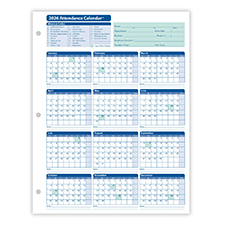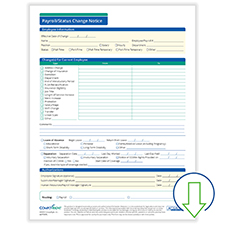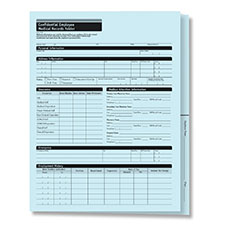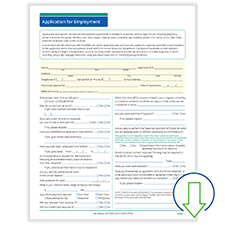
Is there a clear legal boundary between an employee’s work activity, and their conduct outside the workplace? Not necessarily, which means an employer’s right to discipline employees for actions away from work varies. Even in states covered by “at will” employment — where the law allows you to terminate an employee for any reason, or no reason — you must carefully weigh privacy matters, anti-discrimination laws and other employment legislation before firing an employee.
So when can you intervene regarding an employee’s outside behavior? In most cases, it’s best to make decisions based on how the conduct impacts the business and the employee’s ability to do his or her job. Always avoid knee-jerk reactions, and take the time to assess every risk factor before taking any action. Here are some common scenarios for consideration:
- Arrests and convictions
If an employee gets arrested or you find out an employee has been convicted of a crime, you might question keeping that person. However, some states, including California, prohibit firing or disciplining an employee just because of an arrest (such as for DUI or a domestic dispute). Keep in mind that arrest doesn’t equal conviction. If the employee misses work, consider treating any related absences as time off (paid or unpaid as your policies dictate) until a verdict is handed down.
Even if an employee is convicted of a crime, be cautious about taking immediate disciplinary action — unless the conviction is directly related to the individual’s job duties. For example, if a truck driver is convicted of DUI, or a financial counselor of embezzlement, you may have legal grounds for dismissal to protect your business or customers.
- Sexual harassment
With the alarming rise in sexual harassment claims, it’s vital to protect your company from any potential negative incidents. This includes the expectation that employees will uphold anti-harassment company policies outside the workplace. Any sexual harassment of employees or other individuals related to your business (such as clients, customers, vendors or independent contractors) outside of the workplace or after hours can contribute to a “hostile work environment” — and is a violation of employment laws. As such, taking disciplinary action for off-duty conduct would be appropriate in these cases.
- Employee romances
Employee romances that turn sour could leave your company vulnerable to workplace harassment claims. In addition to implementing a strong anti-harassment policy to safeguard against this, you might want to adopt a written anti-fraternization policy. It can prohibit supervisor-subordinate romantic relationships, for example, or require employees to notify you of relationships. In the latter case, consider moving one or both individuals to a different department or supervisor to minimize any possible disruption from the personal relationship. But remember, employees are human, and their relationships can be complicated, so prioritize professional behavior — and only take action if it’s necessary to create stability in the workplace.
- “Protected concerted activity”
Under the National Labor Relations Act (NLRA), employees have the right to discuss wages, benefits and working conditions with each other. Whether employees are part of a union or not, these actions are considered “protected concerted activity” under the law, and it’s illegal to monitor or curtail it. For example, if employees gather in or outside the workplace to air their grievances and discuss organizing a union, you cannot take any action against them.
- Social media
Disciplining employees for social media activity, particularly in cases where employees discuss working conditions or wages at your company, could violate the NLRA, as well. Even if an employee’s comments sound disloyal or critical of your company, they may be protected as concerted activity, whether the employee is part of a union or not.
Certain laws also protect “whistleblowers,” or employees who report illegal activity or workplace employment violations. For example, you could be committing an unfair labor practice if you discipline an employee for an angry post about suspected OSHA violations or having to work overtime during the holidays. However, you’re free to take action against an employee for violating trade secrets or confidentiality clauses, or making libelous claims against a coworker, which are not protected activities under the NLRA.
- Alcohol and tobacco use
To promote a healthy workforce and reduce healthcare costs, many employers encourage employees to give up smoking and drinking alcohol. But taking specific action, such as firing employees who smoke, could get you in legal trouble. Many states, including New York, California and Colorado, have laws protecting employees against being fired for consuming legal products — such as tobacco or alcohol — outside of work. It is best to limit your policies to actions that directly affect workplace performance, such as appearing at work intoxicated or smoking on premises.
Employers can take disciplinary action, including termination, when employees break the law, violate workplace policy, disrupt work or harm the company’s reputation.
- Medical marijuana
Cannabis use for medical reasons has been legalized in many states. Several states also have laws that prohibit making employment decisions based solely on its use. If you become aware that an employee uses marijuana or other cannabis product, you should reserve any disciplinary action until you’ve determined whether the usage was medicinal and whether it interferes with the person’s ability to perform essential job duties. In some states, taking disciplinary action (such as firing) isn’t legal unless the person used or was impaired by marijuana during work hours.
- Political activity, including protesting
As politically motivated riots and protests become more commonplace, the issue of personal accountability comes into play. Can individuals who “make a scene” or even cause damage be held responsible, including being terminated from their jobs? The short answer is “yes,” depending on your state. Where your business is located and if your business is public or private determines how your employees’ political activities or speech can be regulated or disciplined.
That being said, be aware that several states, including California, New York and Nevada, ban employers from retaliating against employees for their political beliefs or activities.
- Moonlighting
Naturally, you want your employees to be loyal to your company; however, forbidding them from working a second job (or “moonlighting”) may not be legal. In states that have broad protections covering off-duty employee conduct, you can’t curtail outside employment, unless you can prove the second job poses a conflict of interest that is detrimental to your business. Make sure you word any restrictions about outside employment carefully.
Avoid Legal Issues with Solid Off-Duty Workplace Policies
Before developing guidelines regarding off-duty conduct, make sure you understand the various federal and state laws that apply. It’s also a good idea to develop a comprehensive employee handbook that covers these and other legal parameters.
Choose the service (an electronic policy library or a Web-based app) that works best for your business to create and communicate up-to-date, attorney-approved policies — and, most importantly, protect your workplace from lawsuits.
Related Content:
Hair’s the Deal: Natural Hair Discrimination Is Now Illegal in Certain States
First Amendment in the Workplace: Can Employees Really Say Anything They Want?





 Shopping cart
Shopping cart





